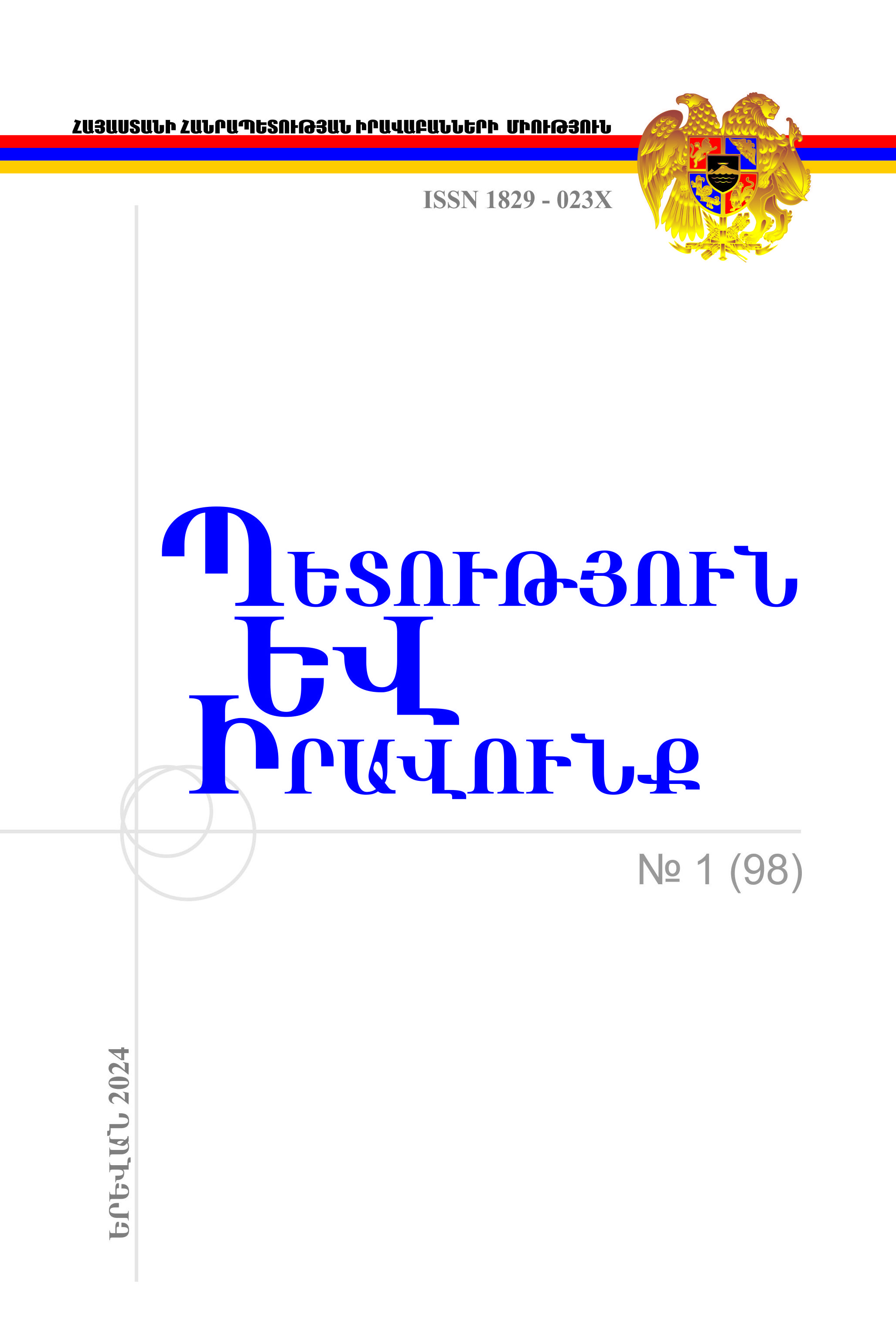THE LEGALITY OF UNILATERAL ECONOMIC SANCTIONS IN INTERNATIONAL LAW
DOI:
https://doi.org/10.46991/SL/2024.98.134Keywords:
unilateral economic sanction, countermeasure, human consequences, legality, extraterritorial jurisdiction, crisis, prohibitionAbstract
This thesis explores the legality of unilateral economic sanctions in international law․ Here, the legal discussion junctures into two main strands. More specifically, the argument revolves around the perception of this area of contemporary international law as containing no outright prohibition – neither in treaty nor custom – for states to freely alter its economic relations, including by imposing economic sanctions against other States or actors. non-forcible sanctions imposed by the UN Security Council in accordance with Chapter VII of the UN Charter, are lawful. The same can be said of sanctions imposed by individual states iն accordance with UNSC authorization, given that the authorization in question is in line with the provisions of Chapter VII of the UN Charter․ However, for both direct and indirect UNSC economic sanctions, this lawfulness is dependent on adhering to both the principle of proportionality and to human rights regulation.
On the other hand, the case is made that unilateral economic sanctions are illegal in their capacity of coercive measures. This argument largely revolves around the prohibitions of such measures laid out in UNGA resolutions, primarily the Friendly Relations Declaration of 1970. The primary grounds for illegality of economic sanctions in this resolution is rooted in the principles of State sovereignty and of non-intervention. This position is also supported by a significant majority of UN member States, continually and consistently voting in favour of denouncements of unilateral coercive measures in yearly UNGA resolutions
Downloads
Published
Issue
Section
License
Copyright (c) 2024 State and Law

This work is licensed under a Creative Commons Attribution-NonCommercial 4.0 International License.

